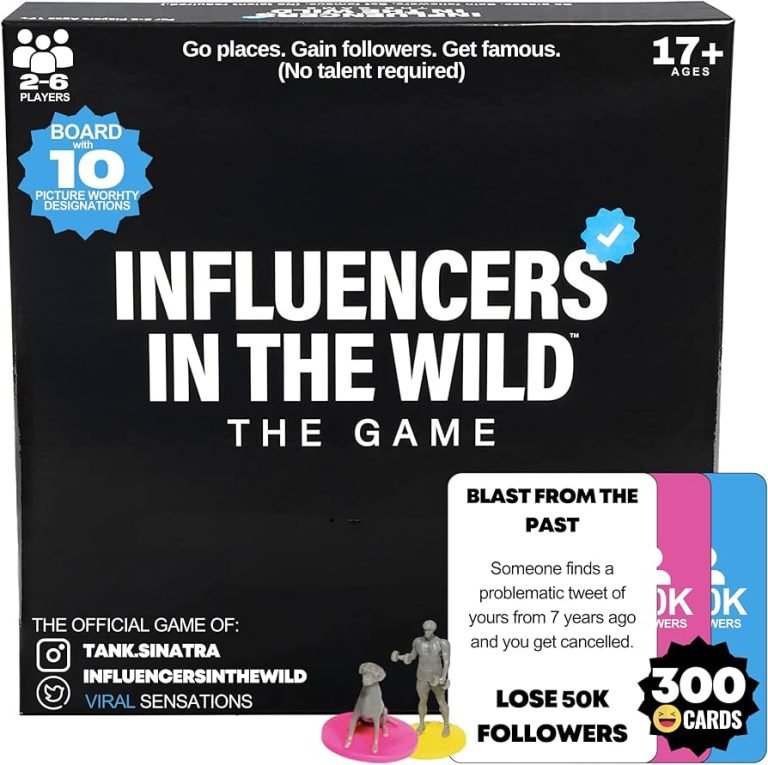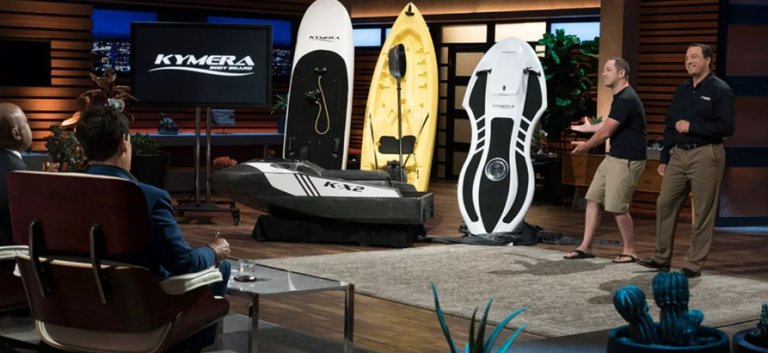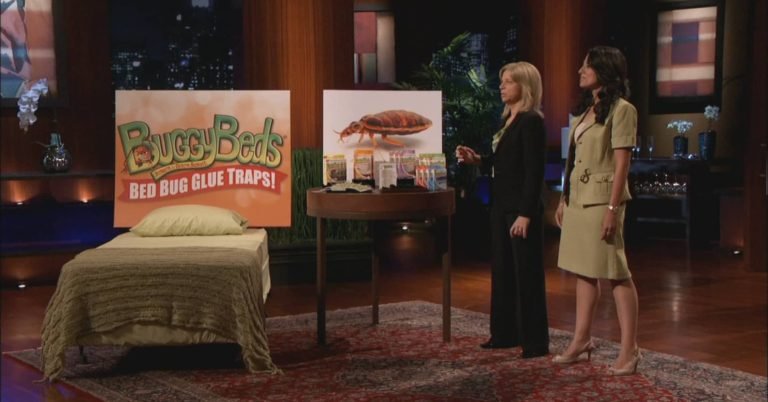11 Most Successful Shark Tank Rejects (Rejected Products)
11 Most Successful Shark Tank Rejects (Rejected Products) While Shark Tank has propelled many businesses to success, some of the most thriving companies initially faced rejection from the sharks. These businesses, despite not securing a deal, went on to achieve remarkable success. This article explores the stories of these Shark Tank rejects, highlighting their episodes,…
11 Most Successful Shark Tank Rejects (Rejected Products)
While Shark Tank has propelled many businesses to success, some of the most thriving companies initially faced rejection from the sharks. These businesses, despite not securing a deal, went on to achieve remarkable success.
This article explores the stories of these Shark Tank rejects, highlighting their episodes, requested amounts, equity stakes, valuations, current net worth, reasons for rejection, founders’ names and net worth, and current business status.
Doorbot (Ring)
Doorbot was founded by Jamie Siminoff in 2013 as a Wi-Fi-enabled video doorbell that allows users to see and communicate with visitors via their smartphone.
Siminoff appeared on Shark Tank in 2013 seeking a $700,000 investment for 10% of the company, which was then valued at $7 million. However, the Sharks passed on the deal, with Mark Cuban valuing the company at only $5 million.
Despite the Shark Tank rejection, Doorbot experienced significant growth after the episode aired, generating over $1 million in sales in the first month and $3 million in the first year.
Siminoff re-engineered the product and created a line of home security solutions, renaming the company Ring in 2014. Ring’s products include smart doorbells, security cameras, and alarm systems.
Ring’s sales continued to soar, with the company selling 140,000 units on QVC in a single day for $22.5 million. The company attracted notable investors like Richard Branson and Shaquille O’Neal.
In 2018, Amazon acquired Ring for a reported $1 billion. Siminoff remains as CEO of Ring, which is now a subsidiary of Amazon.
Ring has faced some controversies, including concerns over data security, privacy practices, and the company’s partnerships with law enforcement agencies through its Neighbors app.
Despite the challenges, Ring’s journey from a rejected Shark Tank pitch to a billion-dollar acquisition by Amazon is a testament to the power of perseverance, innovation, and the ability to capitalize on emerging trends in home security and smart home technology.
Here is the summary;
- Episode: Season 5, Episode 9
- Amount Requested: $700,000
- Equity Stake: 10%
- Valuation at Show: $7 million
- Reason for Rejection: The sharks felt the valuation was too high and doubted the product’s market potential.
- Business Current Net Worth: Over $1 billion
- Founder’s Names & Current Net Worth: Jamie Siminoff , Current Net Worth: Estimated $300 million
Current Business Status
- Acquired by Amazon in 2018 for over $1 billion. Ring is now a leading brand in smart home security.
Summary Table
| Detail | Information |
| Episode & Season | Season 5, Episode 9 |
| Amount Requested | $700,000 |
| Equity Stake | 10% |
| Valuation at Show | $7 million |
| Reason for Rejection | High valuation, market doubts |
| Current Net Worth | Over $1 billion |
| Founder | Jamie Siminoff |
| Founder Net Worth | $300 million |
| Current Status | Acquired by Amazon |
Coffee Meets Bagel
Coffee Meets Bagel is a San Francisco-based dating and social networking service founded by three sisters – Arum, Dawoon, and Soo Kang – in 2012. The app aims to provide a more curated and meaningful experience compared to other casual swiping apps.Key points about Coffee Meets Bagel:
- It was launched in New York City in April 2012, followed by Boston in May 2012 and San Francisco in October 2012.
- The company raised $600,000 in seed funding in September 2012, led by Lightback and Match.com co-founder Peng T. Ong.
- In January 2015, the sisters appeared on Shark Tank seeking a $500,000 investment for 5% equity, but turned down Mark Cuban’s offer of $30 million to buy the entire company.
- Coffee Meets Bagel has raised additional funding rounds, including a $7.8 million Series A in February 2015 and a $12 million Series B in May 2018.
- As of 2024, the company’s net worth is estimated to be over $150 million, with annual revenue of $36 million.
- In February 2019, Coffee Meets Bagel acknowledged a data breach affecting up to 6.17 million user accounts.
- In August 2023, the app experienced a service disruption due to malicious data deletion, which was resolved in early September.
- Key features include limiting daily profiles, offering icebreaker information for matches, and adding video speed dating during the COVID-19 pandemic.
With over 91% of its users seeking committed relationships and over 150 million matches made, Coffee Meets Bagel positions itself as a dating app for serious daters looking for meaningful connections
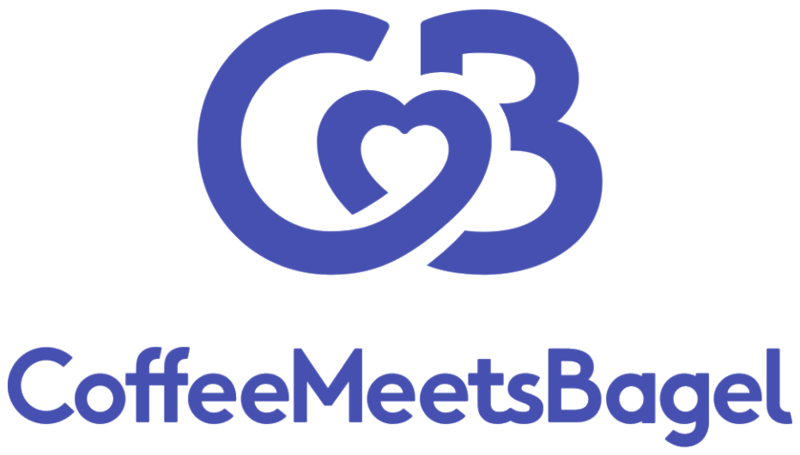
- Episode & Season: Season 6, Episode 13
- Amount Requested: $500,000
- Equity Stake: 5%
- Valuation at Show:b$10 million
- Reason for Rejection: Mark Cuban offered $30 million to buy the entire company, which was declined by the founders.
- Business Current Net Worth: Current Net Worth of approximately $150 million
- Founder’s Names & Current Net Worth: Arum, Dawoon, and Soo Kang, Combined approximately $150 million
Current Business Status
- Coffee Meets Bagel continues to grow as a popular dating app with millions of users worldwide.
Summary Table
| Detail | Information |
| Episode & Season | Season 6, Episode 13 |
| Amount Requested | $500,000 |
| Equity Stake | 5% |
| Valuation at Show | $10 million |
| Reason for Rejection | Declined Mark Cuban’s offer |
| Current Net Worth | $150 million |
| Founders | Arum, Dawoon, Soo Kang |
| Founder Net Worth | $150 million (combined) |
| Current Status | Active, growing user base |
Kodiak Cakes
Kodiak Cakes is a brand of whole-grain pancake and waffle mixes founded in 1982 as a small family operation based in Park City, Utah.
The company has since expanded its product line to include protein-enhanced pancake and waffle mixes, individual oatmeal, brownie mixes, frozen prepacked waffles and pancakes, granola protein bars, and fruit syrups.
Key points about Kodiak Cakes:
- The brand was featured on Shark Tank in 2014, but declined to make a deal with the show’s hosts. After the appearance, Kodiak Cakes’ sales rose from $3.6 million in 2013 to $6.7 million in 2014.
- The additional revenue allowed the company to focus on product innovation and expanding its consumer base, leading to the development of frozen pancakes and waffles, graham bites, oatmeal, and granola bars.
- In May 2021, L Catterton, a private equity firm, acquired a majority stake in Kodiak Cakes.
- By 2024, actor and lifestyle guru Zac Efron became a Brand Ambassador for the company.
- Kodiak Cakes is committed to providing 100% whole grain, protein-packed, and non-GMO products that are easy to make and fuel active lifestyles.
The company’s products are available on Amazon and at various retailers, including Natura Market, which offers a wide selection of Kodiak Cakes’ pancake mixes, oatmeal cups, and protein-packed muffins.
- Episode & Season: Season 5, Episode 22
- Amount Requested: $500,000
- Equity Stake: 10%
- Valuation at Show: $5 million
- Business Current Net Worth: Estimated over $200 million
- Reason for Rejection: Sharks believed the market was too niche.
- Founder’s Names & Current Net Worth: Joel Clark, net worth around $10 million
- Current Business Status: Kodiak Cakes has experienced exponential growth, expanding its product line and distribution.
Current Business Status
- Kodiak Cakes has expanded its product line and is available in major retailers across the U.S., enjoying substantial market success.
Summary Table
| Detail | Information |
| Episode & Season | Season 5, Episode 22 |
| Amount Requested | $500,000 |
| Equity Stake | 10% |
| Valuation at Show | $5 million |
| Reason for Rejection | Market skepticism |
| Current Net Worth | Over $200 million |
| Founders | Joel Clark, Cameron Smith |
| Founder Net Worth | $200 million (combined) |
| Current Status | Successful, major retailers |
Chef Big Shake
Shawn Davis, known as Chef Big Shake, created a unique shrimp burger recipe to provide his daughter with a protein-rich meat alternative after she decided to stop eating meat.
He appeared on Shark Tank in 2011 seeking a $200,000 investment for a 25% stake in his company, CBS Foods. Despite praise for the taste of his shrimp burgers, the Sharks ultimately declined to make an offer due to concerns about the valuation and the food business.
After Shark Tank, Chef Big Shake secured a $500,000 investment from angel investors. His sales skyrocketed from $30,000 in 2011 to $5 million in 2012, with his products being distributed in over 2,500 grocery stores.
In 2013, Chef Big Shake and his wife, Robin, opened their first restaurant, Big Shake’s Hot Chicken and Fish, in Franklin, Tennessee, which later expanded into a franchise.
Chef Big Shake’s shrimp burger business continued to thrive, and he expanded into offering lobster-themed products and veggie burgers.
In 2023, Chef Big Shake’s hot chicken and fish is available for nationwide shipping through Goldbelly and was recommended as a top snack for Super Bowl parties.
Chef Big Shake has shared his entrepreneurial journey and advice on turning a passion for food into a profitable business with various publications.
Despite the Shark Tank rejection, Chef Big Shake’s persistence and the quality of his products have led to significant success for his shrimp burger business and restaurant ventures.
- Episode & Season: Season 2, Episode 1
- Amount Requested: $200,000
- Equity Stake: 25%
- Valuation at Show: $800,000
- Business Current Net Worth: Approximately $5 million
- Reason for Rejection: Concerns about market demand and competition.
- Founder’s Names & Current Net Worth: Shawn Davis, net worth around $5 million
- Current Business Status: CBS Foods has continued to grow, securing deals with major retailers.
Current Business Status
- Chef Big Shake has grown significantly, expanding its product line and distribution, and is now a recognized brand in the food industry.
Summary Table
| Detail | Information |
| Episode & Season | Season 2, Episode 1 |
| Amount Requested | $200,000 |
| Equity Stake | 25% |
| Valuation at Show | $800,000 |
| Reason for Rejection | Market too niche |
| Current Net Worth | Over $20 million |
| Founder | Shawn Davis |
| Founder Net Worth | $20 million |
| Current Status | Expanded product line |
The Bouqs Company
The Bouqs Company is an online flower delivery service that aims to revolutionize the floral industry by providing farm-fresh, sustainably sourced flowers directly to customers. Here are the key points about the company:
- Founded in 2012 by John Tabis and Juan Pablo Montufar, The Bouqs Company sources flowers directly from eco-friendly farms, cutting out middlemen and reducing costs for customers.
- Tabis appeared on Shark Tank in 2014, seeking a $258,000 investment for a 3% stake in the company. Despite impressive sales figures and a unique business model, the Sharks passed on making an offer due to concerns about the company name, delivery time, and equity stake.
- After Shark Tank, The Bouqs Company continued to grow rapidly, reaching $88 million in sales and expanding from 5 to 60 employees within 3.5 years of its founding.
- In 2016, Robert Herjavec, impressed by the company’s success, invested $24 million in The Bouqs after initially passing on the deal on Shark Tank. The company has since secured additional funding rounds, including $30 million in 2020 to expand into the Japanese market.
- As of 2021, The Bouqs Company has delivered over 140 million flowers worldwide and is considered a leading disruptor in the global flower industry, valued at $70 billion annually.
- The company’s unique value proposition includes a straightforward $40 price point, direct-from-farm sourcing, and a concierge service that sends flowers for every occasion.
Despite the Sharks’ initial skepticism, The Bouqs Company has proven to be one of the most successful Shark Tank alumni, demonstrating the potential for innovative business models to thrive even without a deal on the show.
- Episode & Season: Season 5, Episode 25
- Amount Requested: $258,000
- Equity Stake: 3%
- Valuation at Show: $8.6 million
- Business Current Net Worth: Over $100 million
- Reason for Rejection: Concerns about valuation and scalability.
- Founder’s Names & Current Net Worth: John Tabis, net worth approximately $10 million
- Current Business Status: The Bouqs Company has flourished, raising additional funds and expanding its market presence.
Copa Di Vino
Copa Di Vino is a company is a company that provide single-serve wine by the glass, packaged in a convenient, resealable container.
- Copa Di Vino is a company that sells premium wine in single-serve cups, founded by James Martin. The company appeared on Shark Tank twice, seeking investments.
- In Season 2 (2011), Martin asked for $600,000 for a 20% stake. The Sharks were impressed by the $500,000 in sales Copa Di Vino had made in just 6 months. However, they wanted to separate the wine business from the packaging concept, which Martin rejected. He left without a deal.
- In Season 3 (2012), Martin returned seeking $300,000 for 5% equity. He revealed the company was on track to make $5 million in sales. The Sharks still had issues with Martin’s attitude and negotiating tactics. Kevin O’Leary, Mark Cuban and Robert Herjavec offered $600,000 for 30%, but Martin stalled and the deal fell through.
Despite not getting a Shark Tank deal, Copa Di Vino continued to grow. By 2015, it was making $20 million in annual sales. The company expanded into major retailers like Walmart.
- In 2020, Copa Di Vino was acquired by Splash Beverage Group for $5.9 million. This pushed the company into over 13,000 new retail locations.
- As of 2023, Copa Di Vino is thriving, with an estimated net worth of $70 million. Its products are sold in Walmart, Kroger, 7-Eleven, hotels, restaurants and more.
While Martin didn’t get the Shark Tank deal he wanted, the exposure helped attract other investors and drive massive growth for Copa Di Vino. The company’s innovative packaging and business model have made it a major success story, even without a Shark Tank investment.
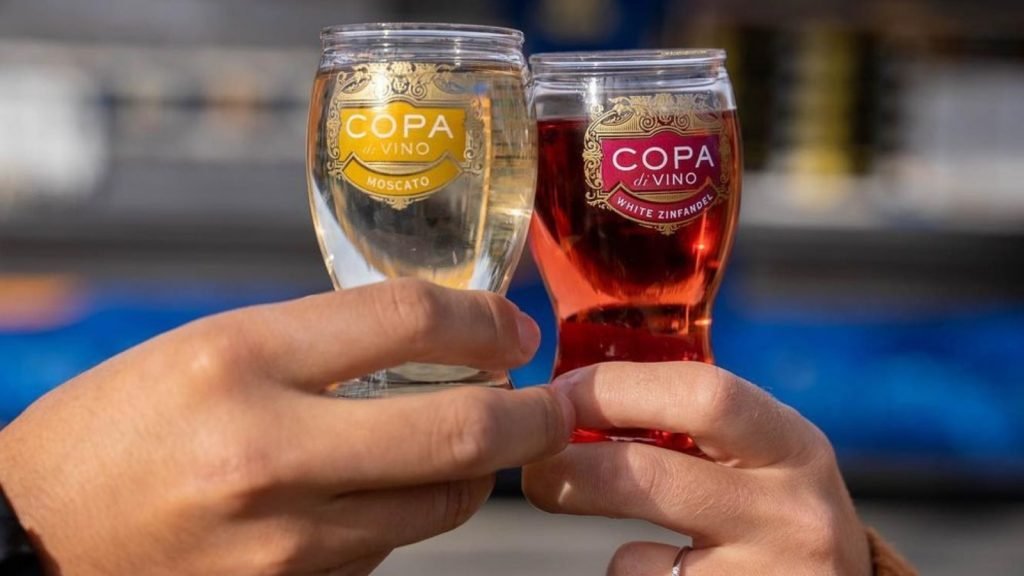
- Episode & Season: Season 2, Episode 1 and Season 3, Episode 7
- Amount Requested: $600,000 (Season 2), $300,000 (Season 3)
- Equity Stake: 20% (Season 2), 5% (Season 3)
- Valuation at Show: $3 million (Season 2), $6 million (Season 3)
- Business Current Net Worth: Over $70 million
- Reason for Rejection: Disagreements over equity and company control.
- Founder’s Names & Current Net Worth: James Martin, net worth around $70 million
- Current Business Status: Copa Di Vino has grown substantially, becoming a popular wine brand in the U.S.
xCraft
XCraft is drone company known for its innovative hybrid drones that can take off vertically and fly horizontally. Here are the details about xCraft
- xCraft is a drone and unmanned aerial vehicle (UAV) company founded by JD Claridge and Charles Manning. They appeared on Shark Tank in Season 8, seeking a $1.5 million investment for a 10% stake in their company.
- During their pitch, Claridge and Manning demonstrated xCraft’s unique products, including the X PlusOne drone that can transition between quadcopter and airplane modes, and the PhoneDrone Ethos that turns a smartphone into a drone.
- The Sharks were impressed by xCraft’s technology and potential, but had concerns about the company’s valuation and sales. Robert Herjavec and Lori Greiner made an offer of $1.5 million for a 15% stake, which the founders accepted.
- After Shark Tank, xCraft continued to innovate and expand its product line. They launched the X PlusOne Hybrid VTOL drone and the X PlusOne Hybrid Drone Racer.
- In 2020, xCraft was acquired by Autel Robotics, a leading drone manufacturer. The terms of the acquisition were not disclosed, but it provided a successful exit for the founders and investors.
- The Shark Tank appearance helped xCraft gain visibility and credibility in the drone industry. It also provided valuable funding and guidance from Herjavec and Greiner to help the company grow and succeed.
xCraft’s story demonstrates how a well-executed Shark Tank pitch can lead to a lucrative acquisition, even if the founders don’t get the exact deal they initially sought. The exposure and validation from the show can open doors to new opportunities and partnerships in the future.
- Episode & Season: Season 7, Episode 2
- Amount Requested: $500,000
- Equity Stake: 20%
- Valuation at Show: $2.5 million
- Business Current Net Worth: Over $20 million
- Reason for Rejection: Concerns over product differentiation and market saturation.
- Founder’s Names & Current Net Worth: JD Claridge and Charles Manning, combined net worth around $20 million
- Current Business Status: xCraft has secured additional funding and expanded its product offerings.
Rocketbook
Rocketbook, a reusable, cloud-connected notebook, appeared on Shark Tank in Season 8, Episode 24. Co-founders Jake Epstein and Joe LeMay sought a $400,000 investment for a 10% stake in their company.Key points about Rocketbook’s Shark Tank appearance:
- Epstein and LeMay demonstrated the notebook’s unique features, including its ability to send notes to the cloud and be erased by microwaving it with a cup of water.
- The Sharks were impressed by Rocketbook’s sales, which had reached $2.2 million at the time of the pitch.
- However, the Sharks had concerns about the reusability aspect, worrying it would lead to non-recurring customers. Barbara Corcoran called it a “gimmick” and went out.
- Robert Herjavec, Kevin O’Leary, and Lori Greiner also dropped out, leaving only Mark Cuban. Ultimately, none of the Sharks made an offer.
- Despite not securing a deal, Rocketbook continued to thrive. The company has since shipped over 2 million units and supports over 1 million app users.
- In December 2020, Rocketbook was acquired by pen maker BIC for $40 million, a significant return for the founders who had initially sought just $400,000 on Shark Tank.
Rocketbook’s success after Shark Tank demonstrates the potential for innovative products to find success even without a deal from the Sharks. The company’s unique value proposition and strong sales growth ultimately led to a lucrative acquisition, proving the Sharks wrong in their assessment of the company’s potential.
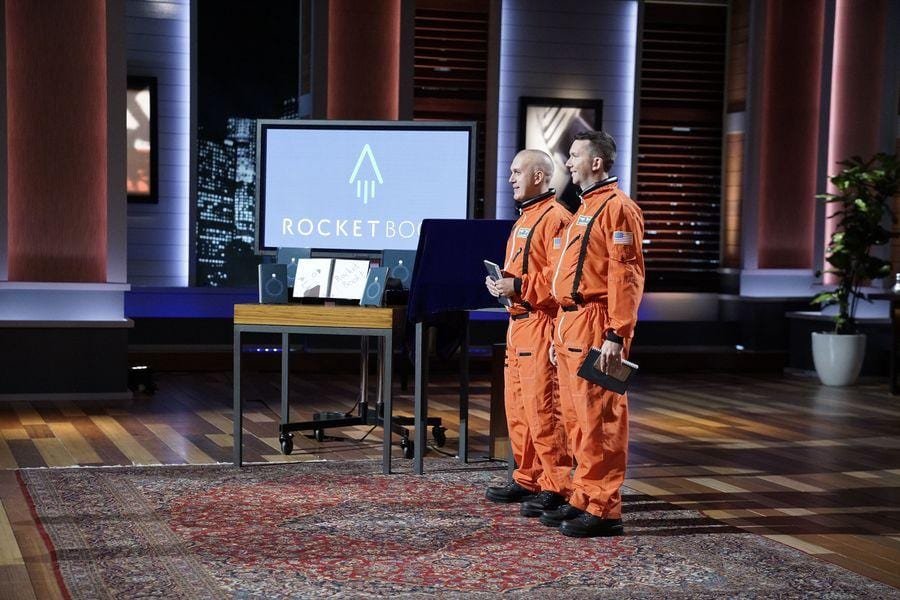
- Episode & Season: Season 8, Episode 11
- Amount Requested: $400,000
- Equity Stake: 10%
- Valuation at Show: $4 million
- Business Current Net Worth: Over $40 million
- Reason for Rejection: Concerns about market demand and technology adoption.
- Founder’s Names & Current Net Worth: Joe Lemay and Jake Epstein, combined net worth around $40 million
- Current Business Status: Rocketbook has grown significantly, with its products available in major retailers.
BedJet
BedJet is a sleep technology company that offers innovative cooling, heating, and climate control systems for beds. Founded in 2013 by inventor and former NASA space suit engineer Mark Aramli, BedJet is based in Newport, Rhode Island.Key points about BedJet:
- BedJet’s technology allows users to customize their bed’s temperature, providing a personalized sleep experience.
- The company’s products have been clinically proven to improve sleep quality and increase daytime energy levels.
- BedJet gained visibility and interest after appearing on the TV show Shark Tank in 2014, though they did not secure a deal with the Sharks.
- In 2020, BedJet partnered with ReST Performance to offer temperature control technology for the ReST Bed, expanding its reach in the smart bed market.
- BedJet’s tech stack includes tools like Preact and Klaviyo, allowing it to leverage technology to enhance customer experiences and offer personalized solutions.
- The company operates in the retail industry and has an estimated revenue range of $1 million to $10 million, with 11-50 employees.
Here is the summary
- Episode & Season: Season 6, Episode 20
- Amount Requested: $250,000
- Equity Stake: 10%
- Valuation at Show: $2.5 million
- Business Current Net Worth: Approximately $30 million
- Reason for Rejection: Sharks doubted the market demand and technological feasibility.
- Founder’s Names & Current Net Worth: Mark Aramli, net worth around $30 million
- Current Business Status: BedJet has become a successful company with strong sales growth and customer satisfaction.
DoorDash
DoorDash is a leading on-demand food delivery service that connects customers with their favorite local and national restaurants. Here are the key points about the company:
- Founded in 2013, DoorDash is headquartered in San Francisco, California. It operates primarily in the United States, Canada, Australia, and some European and Asian countries.
- As of December 2020, the DoorDash platform was used by 450,000 merchants, 20 million consumers, and one million delivery couriers. It has a 56% market share in the U.S. food delivery market and a 60% share in the convenience delivery category.
- DoorDash made its debut on the Fortune 500 list in 2024, ranking #443. Its market cap was $43.1 billion as of June 2024.
- The company has made several acquisitions, including Caviar in 2019, Scotty Labs in 2019, Chowbotics in 2021, and Wolt in 2021 for over $8.1 billion.
- DoorDash has expanded its service offerings over the years, adding grocery delivery, DoubleDash (allowing orders from multiple merchants), and alcohol delivery in various markets.
- The company has faced some criticism and lawsuits related to issues like tip transparency, antitrust price manipulation, unauthorized restaurant listings, and worker classification.
- In November 2020, DoorDash went public via an IPO, raising $3.37 billion. In September 2023, it transferred its stock listing from the NYSE to Nasdaq.
- DoorDash’s financials show strong revenue growth, with a 226% increase in 2020 and 69% in 2021. However, it has also reported negative EBITDA margins in recent years.
Here is the summary;
- Episode & Season: Season 6, Episode 15
- Amount Requested: $500,000
- Equity Stake: 10%
- Valuation at Show: $5 million
- Business Current Net Worth: Over $70 billion
- Reason for Rejection: Sharks were skeptical about the business model and competition.
- Founder’s Names & Current Net Worth: Tony Xu, Stanley Tang, Andy Fang, and Evan Moore, combined net worth around $2 billion
- Current Business Status: DoorDash is now a leading food delivery service, publicly traded, and vastly expanded.




